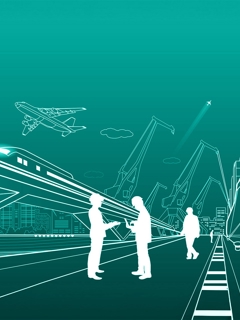The end of 2020 is within our sight. It has been the most difficult year for generations, with the global pandemic causing upheaval to everyone’s daily lives. Yet while COVID-19 has been a negative disruptive force in countless ways, it has also accelerated some key megatrends including decarbonisation and digitalisation, bringing a sharper focus on the possibility of a green economic recovery.
For many of us, it’s clear that the years ahead are a time for action. For Lloyd’s Register, this means active participation in an industry wide collaboration to drive the necessary change. We all need to recognise how our ways of living affect our planet and for us, decarbonising the maritime industry is a key priority.
Transitioning our industry to net zero comes with challenges. The technology exists – we can build the ships – but we need to move from pilots and prototypes to commercially viable deep-sea vessels. It will be costly, heavily dependent on research and development and require stakeholders from across the supply chain to address the landside infrastructural requirements. For shipping to invest in zero-carbon tonnage, it needs clarity on future fuel costs and availability, as well regulatory certainty that the decisions of today won’t be penalised in the years to come.
We all know that there will be multiple solutions for the industry to consider as it forges a path to a clean energy future. To support this transition, our industry needs trusted advice, information, expertise and thought leadership. This is why Lloyd’s Register has launched its Maritime Decarbonisation Hub, which aims to create safe, sustainable pathways to a zero-carbon maritime industry. The Hub, a joint initiative between Lloyd’s Register Group and Foundation, brings together the skills, knowledge and capabilities to help the maritime industry to design, develop and commercialise the pathways to future fuels, vessels and the operational models required for decarbonisation.
Sharing our knowledge on safety and sustainability has been core to our 260- year heritage and we are committed to support the changes facing our industry with practical, pragmatic and commercially viable solutions.
The journey ahead is unlikely to be straightforward or easy, but the agility and adaptability that has been so abundant in the maritime sector in recent months is cause for optimism. We are resilient people; we know how and when to pull together, and we have encountered similar propulsion revolutions before. We also have the fortitude and tenacity to secure this change as we know it will guarantee a better greener tomorrow for us all.








